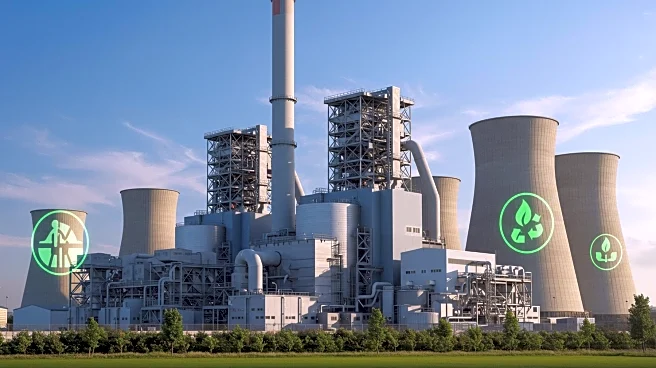What's Happening?
Victoria, Australia, is advancing its waste management strategy by approving seven new waste-to-energy plants, adding to four previously approved facilities. This initiative aims to process 2.35 million tonnes of rubbish annually, surpassing the initial legislative cap of 1 million tonnes set in 2022. The waste-to-energy process involves burning non-recyclable waste to generate electricity or heat, a method gaining traction as landfills reach capacity. However, the plan faces opposition from local communities and some political figures. Concerns have been raised about the rapid expansion of the program, potential health risks, and the lack of community consultation, particularly in culturally diverse and lower-income areas. Legalise Cannabis MP Rachel Payne has called for a pause and review of the program's impacts, while community groups express worries about environmental and health consequences.
Why It's Important?
The expansion of waste-to-energy facilities in Victoria highlights a significant shift in waste management practices, with potential implications for environmental policy and public health. While the initiative aims to reduce landfill dependency and generate energy, it raises concerns about emissions and the equitable distribution of environmental burdens. Communities near proposed sites, often less affluent, may face increased health risks and environmental degradation. The debate underscores the need for comprehensive impact assessments and community engagement in environmental decision-making. The outcome of this initiative could influence waste management policies across Australia and potentially set precedents for other regions grappling with similar challenges.
What's Next?
The future of Victoria's waste-to-energy initiative will likely involve further political and community scrutiny. Rachel Payne's motion for a review in parliament could lead to a reassessment of the program's expansion. Additionally, ongoing appeals against environmental approvals may delay or alter project implementations. Stakeholders, including local residents, environmental groups, and political leaders, are expected to continue advocating for stringent environmental standards and greater transparency. The outcome of these discussions could shape the trajectory of waste management policies in Victoria and beyond.
Beyond the Headlines
The controversy surrounding Victoria's waste-to-energy initiative highlights broader ethical and social considerations in environmental policy. The placement of such facilities in lower-income areas raises questions about environmental justice and the fair distribution of environmental risks. The initiative also reflects a global trend towards finding sustainable waste management solutions amid growing environmental concerns. As regions worldwide seek to balance economic development with environmental protection, Victoria's experience may offer valuable lessons in navigating these complex challenges.








